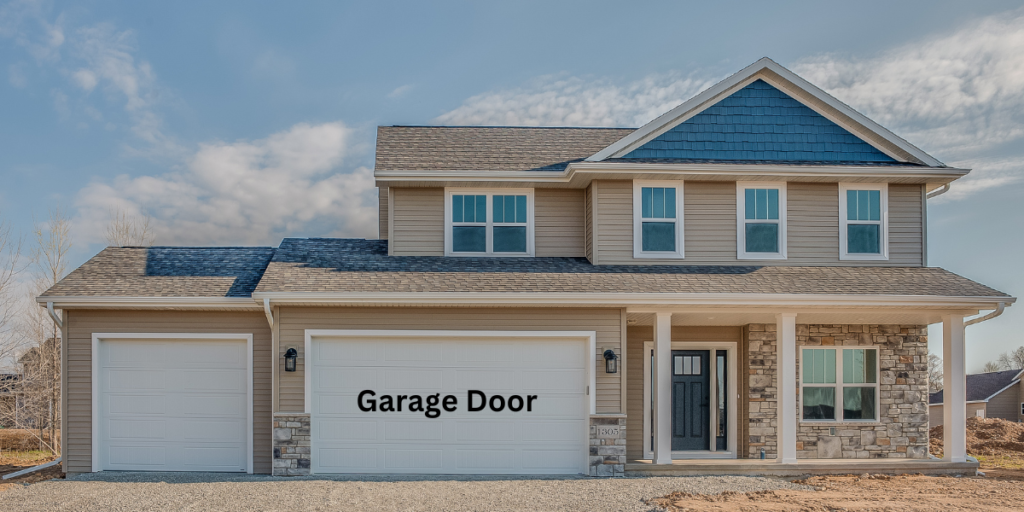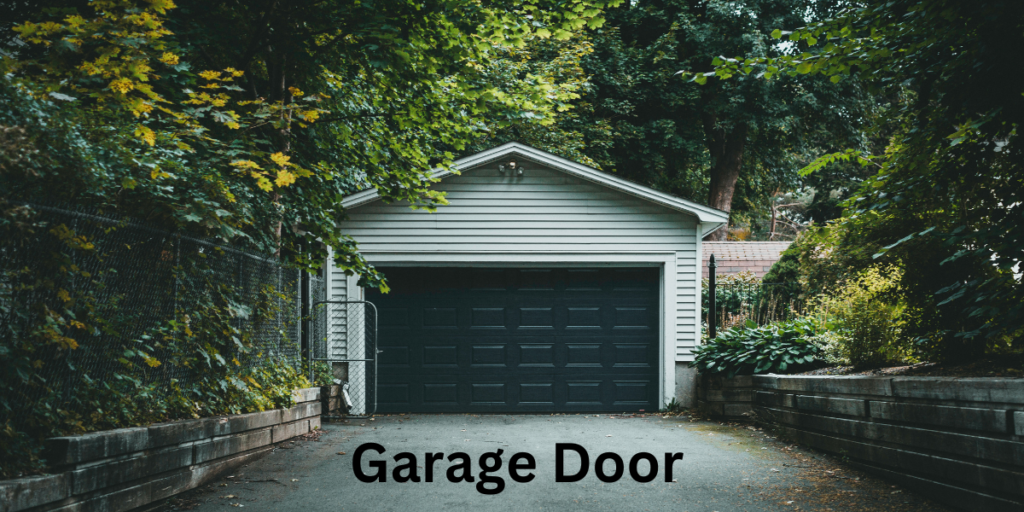Garage Door Insights: From Materials to Maintenance
A garage door is one of the most vital components of your home, providing security, functionality, and curb appeal. Beyond being a simple entryway, garage doors are an essential part of modern living, offering convenience and enhancing the overall value of your property. Whether you’re seeking residential garage doors, solutions for maintenance, or commercial applications, this guide dives deep into every aspect of garage doors.
What Is a Garage Door?

A garage door is a large, movable barrier that covers the entrance of a garage. It can be operated manually or automatically using a garage door opener. Garage doors are available in various designs, materials, and functionalities, catering to residential, commercial, and industrial needs.
Key Features of Garage Doors:
- Material Options: Steel, aluminum, wood, fiberglass, and vinyl are the most common materials used. Each has unique advantages in terms of durability, insulation, and maintenance.
- Operation Mechanisms: Includes manual, automatic, and smart systems that allow remote control through apps or devices.
- Design Versatility: Ranges from traditional paneled designs to modern sleek aesthetics with glass or custom patterns.
Why Is It Called a Garage?
The term “garage” comes from the French word garer, meaning “to shelter.” Historically, garages were created to provide shelter for vehicles, offering a safe, enclosed space to protect them from theft and environmental elements.
As garages evolved, they became multipurpose spaces—used for storage, workshops, and even as living areas. This adaptability makes a garage door an integral part of the home, as it ensures both security and accessibility.
What Is the Main Purpose of a Garage?
While garages were originally designed for vehicle storage, they serve various functions today:
- Vehicle Protection: Shield cars, motorcycles, and bicycles from rain, snow, heat, and UV damage.
- Security: Protects your property from theft and unauthorized access.
- Convenience: Provides convenient and direct access to your home, particularly during bad weather.
- Storage Space: Provides room for tools, seasonal decorations, gardening supplies, and more.
- Workshop or Hobby Space: Many garages double as spaces for woodworking, car repair, or other hobbies.
Uses and Benefits of Garage Doors
Garage doors are essential for ensuring functionality, safety, and visual appeal.
1. Enhanced Security
Modern garage doors come with advanced locking systems, such as keypads, rolling code technology, and smart locks, to ensure maximum security for your home and belongings.
2. Weather Protection
Insulated garage doors maintain indoor temperatures and protect vehicles and stored items from extreme heat, cold, or moisture.
3. Curb Appeal
A well-designed garage door can transform the look of your home, adding elegance and increasing property value. Custom doors with unique finishes, windows, and colors elevate your home’s aesthetic.
4. Versatility
Garage doors cater to various needs—from residential homes to warehouses and commercial facilities. Their adaptability makes them indispensable for different sectors.
5. Energy Efficiency
Insulated doors reduce energy consumption by keeping garages warmer in winter and cooler in summer, minimizing heating and cooling costs.
Types of Garage Doors: A Comprehensive Overview
Understanding the types of garage doors helps you make the right choice for your property.

1. Sectional Garage Doors
These are the most popular residential doors. Made of horizontal panels connected by hinges, they open vertically along a track.
- Advantages: Durable, customizable, and space-efficient.
- Best For: Homes with limited driveway space.
2. Roll-Up Garage Doors
Commonly used in commercial spaces, roll-up doors are made of metal slats that roll into a coil above the doorway.
- Advantages: Compact, durable, and ideal for tight spaces.
- Best For: Warehouses and industrial facilities.
3. Side-Hinged Garage Doors
These traditional doors swing outward like regular doors.
- Advantages: Simple design and easy pedestrian access.
- Best For: Classic or rustic home designs.
4. Tilt-Up Garage Doors
These are single-panel doors that tilt outward and upward when opened.
- Advantages: Sleek appearance and easy operation.
- Best For: Homes with ample driveway space.
5. Slide-to-Side Garage Doors
Sliding doors function by gliding horizontally along a track.
- Advantages: Ideal for garages with limited ceiling space.
- Best For: Contemporary homes and small garages.
6. Custom Garage Doors
Tailored to your preferences, custom doors offer limitless possibilities in terms of material, style, and functionality.
- Advantages: Unique and personalized designs.
- Best For: Homeowners seeking a distinct look.
Garage Door Materials in Detail
The material of your garage door plays a crucial role in its durability, upkeep, and overall look:
- Steel:
- Highly durable and customizable.
- Requires minimal maintenance.
- Can be insulated for energy efficiency.
- Wood:
- Offers a natural, elegant look.
- Requires regular upkeep to prevent rot and warping.
- Ideal for traditional or rustic aesthetics.
- Aluminum:
- Lightweight and rust-resistant.
- Sleek, modern appearance.
- May dent easily compared to steel.
- Vinyl:
- Durable and weather-resistant.
- Low maintenance but limited in design options.
- Great for busy households or coastal areas.
- Fiberglass:
- Resistant to dents and corrosion.
- Can mimic wood textures.
- Susceptible to cracking in extreme temperatures.
Garage Door Maintenance: Tips for Longevity
- Inspect Hardware: Regularly check for loose or worn-out bolts, hinges, and rollers.
- Lubricate Moving Parts: Apply a silicone-based lubricant to hinges, rollers, and tracks every six months.
- Test Safety Features: Ensure the auto-reverse and photo-eye sensors of automatic doors are functioning.
- Clean Regularly: Wash with mild soap and water to prevent dirt buildup and rust.
- Check Weatherstripping: Replace worn seals to improve insulation and block debris or pests.
Garage Door-Related Solutions and Services
Garage Door Warehouse
Warehouses often use heavy-duty garage doors for easy access and storage management. These doors are built to withstand high traffic and usage.
Shop Garage Doors
Retailers offer a variety of garage doors suitable for residential, commercial, and industrial needs. You can choose from ready-made designs or custom options.
Garage Door SKP
Garage Door SKP files are used in 3D modeling software to design custom layouts for garage doors. These are primarily used by architects and contractors.
Garage Door Opener
A key feature of contemporary garage doors, openers provide both convenience and security. Smart openers allow remote access via smartphones or voice commands.
Garage Door Rust
Rust is a common problem for metal doors. Regular cleaning, rust-proof coatings, and immediate treatment can prevent long-term damage.
Conclusion
Garage doors are more than a functional necessity—they are an essential element of home design, security, and convenience. Whether you need a residential door, a warehouse solution, or help with maintenance, understanding your options ensures you make an informed choice.
FAQs about Garage Door
1. What is a garage door?
A garage door is a large entryway that secures the garage and can be operated manually or automatically.
2. What is the use of a garage door?
Garage doors provide security, protect vehicles and belongings, and enhance the home’s curb appeal.
3. Why is it called a garage?
The term originates from the French word garer, meaning “to shelter,” reflecting its purpose of protecting vehicles.
4. What is the main purpose of a garage?
Garages protect vehicles, offer storage, and provide additional functional spaces like workshops or hobby areas.
5. How can I prevent garage door rust?
Regular cleaning, rust-resistant coatings, and timely repairs can keep rust at bay.












Post Comment